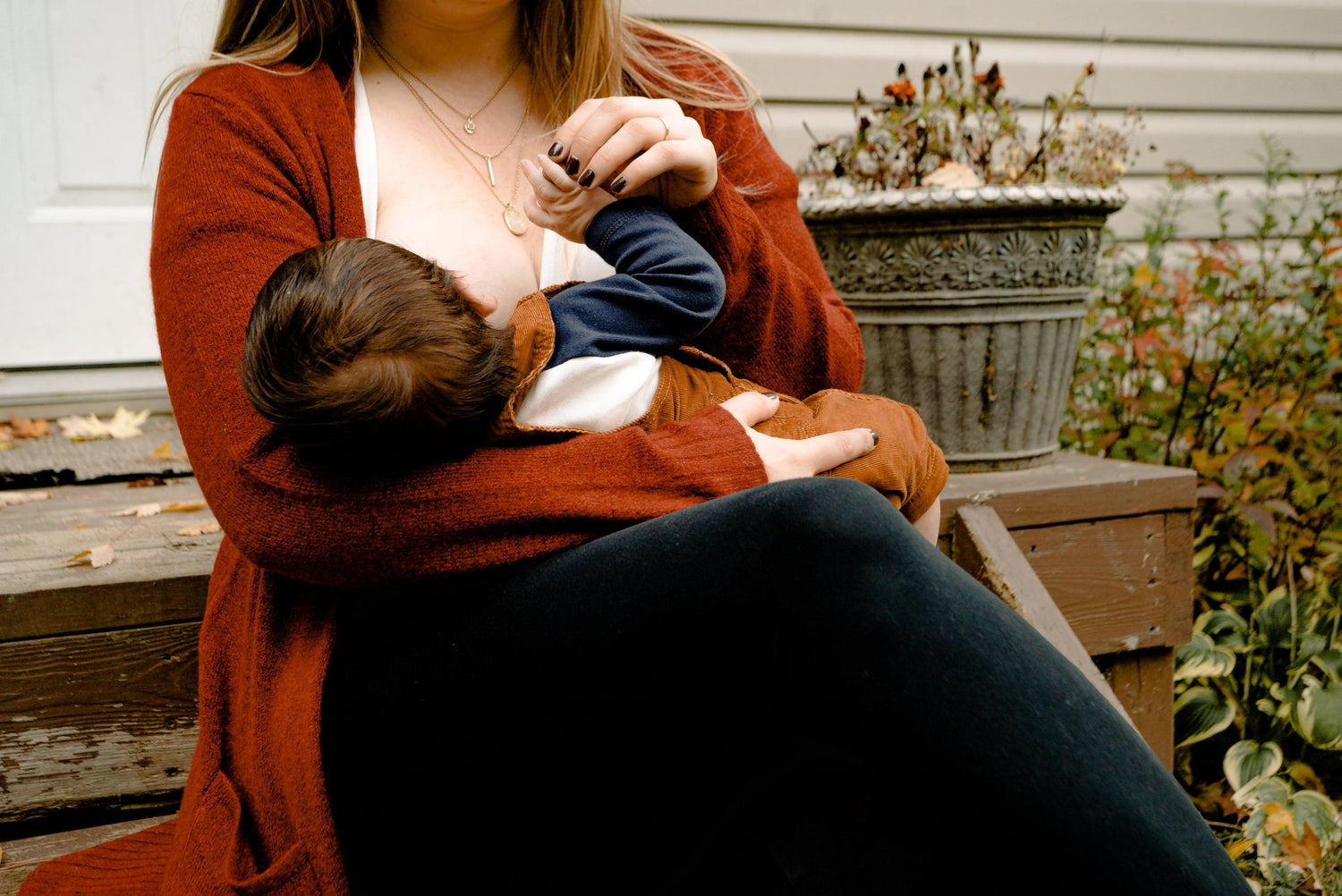Baby cries in sleep: 5 reasons and tips on how to calm your baby
When babies cry while sleeping, it is often worrying and confusing for parents. Why is the baby crying when it should be sleeping? In this article, we will delve deeper into this topic and explore possible causes and solutions for babies crying in their sleep.
Table of contents:
|

1. Crying in your sleep: A baby's natural sleep stages
A baby's natural sleep stages can be divided into REM (Rapid Eye Movement) sleep and non-REM sleep. During REM sleep, the baby's eyes move back and forth rapidly and there is increased brain activity. This phase is often associated with dreams. Non-REM sleep is divided into different stages, from light sleep to deep sleep.
During the first year of life, baby's sleep patterns develop. Newborns tend to have longer periods of REM sleep, while the amount of non-REM sleep gradually increases. With increasing age, sleep cycles lengthen and the baby reaches longer periods of deep sleep.
Crying during sleep can be associated with the different stages of sleep. During REM sleep, there is increased brain activity and more intense dreams. This can cause the baby to become restless and cry in his sleep. Crying in sleep can also occur during the transition between different sleep stages, as the baby moves from a deep sleep to a lighter sleep state.
2. 5 possible reasons why your baby cries in his sleep
Babies crying in their sleep can be due to various reasons. The four most common causes of crying in your sleep are explained below:
1. Hunger or thirst
Hunger is often one of the main reasons babies cry in their sleep. If your baby doesn't get enough nutrition, he or she may become hungry and wake up while sleeping. Make sure you feed your baby enough before bedtime.
2. The sleeping environment
An uncomfortable sleeping environment, such as an incorrect room temperature, inappropriate clothing or bedding, can also lead to restlessness and crying. To find out whether your baby is too cold or too warm, you can simply do the neck test and adjust the sleeping clothes if necessary.
3. Physical aches and pains
Digestive problems such as colic can cause pain in babies, so little ones often cry in their sleep. If your baby suffers from frequent colic, look for ways to relieve the pain, such as: B. by gently massaging the stomach or using heat pads. Developmental spurts or changes such as teething can also cause discomfort. Watch for signs and find ways to calm the baby. For example, cooled teething rings can help with teething.
4. Emotional factors
Emotional factors such as separation anxiety and the need for closeness can cause babies to cry in their sleep. Overstimulation and sensory overload can also play a role. Create a safe and secure environment for your baby to minimize these emotional factors.
5. Poor sleep-wake rhythm
Sometimes an irregular sleep-wake cycle can cause babies to cry in their sleep. Make sure your baby gets enough sleep during the day and stick to a regular sleep schedule to support your baby's natural sleep rhythm.
3. Tips: How can I calm my crying baby while sleeping?
It's important to know that not all screaming in your sleep is a cause for concern. A certain amount of movement and noise during sleep is normal and is part of a baby's natural development. So it's not always related to discomfort or pain.
- Check basic needs: Make sure your baby is not hungry, has a clean diaper, and is lying in a comfortable position.
- Gentle touch: Gently stroke or cuddle your baby to calm him or her. Sometimes physical contact is enough to get the baby to sleep again.
- Background noise: Soft background noise, such as a soothing lullaby or the hum of a fan, can help your baby calm down and fall back to sleep.
- Stay calm: If your baby cries in his sleep, try to stay calm. This calmness can transfer to your baby and help him sleep better.
- Be patient: Sometimes a crying baby just needs some time to calm down on their own. Unless he shows any unusual signs, it is best not to intervene and let him continue to sleep. Waking up suddenly can make the situation worse and cause the baby to cry even more because it is unsettled by the worried parents.
All in all, crying during sleep is a normal part of a baby's development and sleep cycle. Since babies cannot communicate in any other way, crying is a form of communication to express their needs. Through compassionate behavior and appropriate responses, you can help your baby feel safe and secure again.




